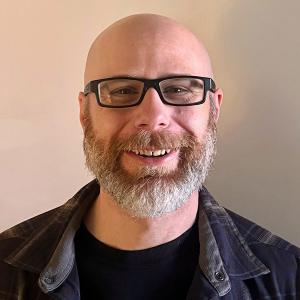The quintessential philosophical argument for me boils down to the notion around whether we are becoming or we are being. I was recently listening to a lecture about the Pre Socratic philosophers Heraclitus and Parmenides who argued these very points. Nietzsche later would take up Hereclitus’ argument and make his case for becoming. This week, I am going to consider becoming as a spiritual practice.
The Pre Socratics
During the 6th century BCE, the Milesians, Pythagoras and Xenophanes were wrestling with the question, “what is the relationship between being and becoming?” Later, Heraclitus and Parmenides would take up these arguments in their philosophic work.
Heraclitus
Heraclitus was the pre-Socratic who is attributed to have said, “It is not possible to step in the same river twice”. And with this, we get the idea of becoming. For Heraclitus, he believed that reality flows like a river. Life is impermanent, always changing, always in flux. Always in the process of becoming. There is no being because for Heraclitus, being was fixed and stable.
Parmenides
Parmenides on the other hand was the champion of being. Parmenides was a rationalist who regarded sensory evidence as untrustworthy and placed an emphasis on logical arguments. The central thesis of Parmenides’ philosophy is “Being is, and Non-Being is not.”. Here, one simply is and simply is not. A thing is and a thing is not. One or a thing do not change because they go in or out of being. For Parmenides, reality was constant.
I Side with Heraclitus
While I may side with Heraclitus, Plato took issue with him. Plato felt that Heraclitus’s views led to relativism. I do not see that this is a problem. I can see why it was a concern for the early Greeks such as Plato and Socrates, but for me, I think it is okay.
In a future essay, I will be talking about Wesley’s quadrilateral: scripture, reason, tradition and experience. I have argued for a long time that reason does not fit anymore, though if you understand historically where Weseley was coming from, you see he is trying to balance rationalist and empiricist sensibilities. Richard Rohr drops reason all together and sees the quadrilateral as a three-legged stool. I then would add back relativism into the mix.
Perhaps one of the more concerning observances I have these days is the polarization of viewpoints. Perhaps if we truly could get our heads around the idea that everything is relative based on your experiences, then maybe we would be a bit happier. Though Descartes, Socrates and Plato may see things differently.
Friedrich Nietzsche
Friedrich Nietzsche was a German philosopher who wrote, studied and taught during the mid 19th century. He was most famous for his uncompromising criticisms of traditional European morality and religion, as well as of conventional philosophical ideas and social and political pieties associated with modernity.
One of the many things Nietzsche was known for was his work on becoming, borrowing on the earlier works of Heraclitus whom we spoke of earlier. Nietzche would write these thoughts a century before modern psychologists came to pinpoint how our beliefs about human nature shape human nature:
Such “free spirits” do not really exist and never did exist. But I stood in need of them, as I have pointed out, in order that some good might be mixed with my evils (illness, loneliness, strangeness, acedia, incapacity): to serve as gay spirits and comrades, with whom one may talk and laugh when one is disposed to talk and laugh, and whom one may send to the devil when they grow wearisome… [And] I see them already coming, slowly, slowly. May it not be that I am doing a little something to expedite their coming when I describe in advance the influences under which I see them evolving and the ways along which they travel?
For Nietzsche, the goal of humanity was to become better versions of themselves. Our purpose is not to be happy all the time and not experience suffering. Borrowing from Buddhist and Stoic thought, our purpose is to think about who we think we are and learn to accept or even embrace suffering and hardships as part of the journey.
Becoming as A Spiritual Practice
Become who you are says Nietzsche. In the funny Star Wars spoof, Spaceballs, Dark Helmet and Colonel Sandurz are having an argument over what is happening on a tv screen depicting now. “Where is this in the movie?” asks Dark Helmet. Sandurz replies, “Now sir, what’s happening now is now.” (see https://www.quotes.net/mquote/89091#google_vignette ) Your life is what is happening now is now. Now, now. When? Now. Every moment is a new now.
It is easy to miss the now if you are focused on the past or perseverating on the future. Jesus encourages us to not worry about tomorrow. Marcus Aurelius challenges us to not let the future disturb us. He tells us that we will meet if we have to, with the same weapons of reason which arm you against the present.
Finally, from Miyamoto Musashi, “Today is victory over yourself of yesterday; tomorrow is your victory over lesser men”. We are all on a path of life, becoming something.
Reference
(2023, December 15). PARMENIDES: UNRAVELING THE MYSTERY OF BEING. The Historyator. Retrieved April 2, 2024, from https://thehistoryator.com/parmenides-unraveling-the-mystery-of-being/
Roochnik, D. (2002). An Introduction to Greek Philosophy. The Great Courses. www.thegreatcourses.com













